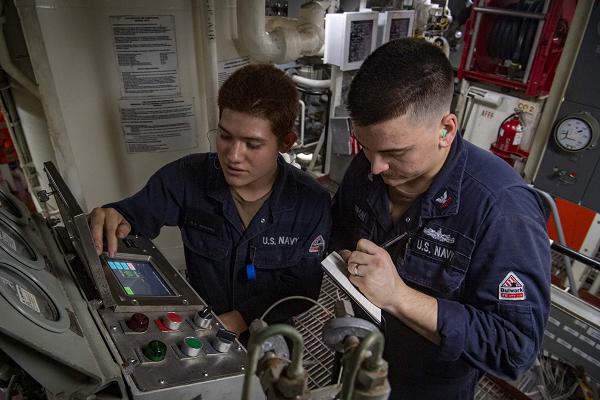
Pacific Ocean. (January 11, 2025): In the Navy, there are little-known heroes who deliver power to the ship, and the entire crew depends on them. In this photo by MC3 Brianna Walker, Gas Turbine Systems Technician (Mechanical) Fireman Manuel Gutierrez trains Electrician's Mate 2nd Class Robbie Zepponi on how to note readings on an air compressor aboard the Arleigh Burke-class guided-missile destroyer USS Sterett. They are responsible for keeping giant turbine engines running around the clock and the survival of the ship is literally in their hands.
Arleigh Burke-class destroyers are powered by two General Electric LM2500 turbines that generate 33,600 shaft horsepower allowing the ship to achieve speeds of thirty-one knots. These LM2500 turbines drive ninety five percent of all current U.S. Navy ships.
Called GSMs for short, these highly skilled professionals know how to operate, repair, and maintain every mechanical component of the LM2500 gas turbine engine. They are experts on its main propulsion machinery (including gears, shafts, and propellers), and how to managing its control systems.
To become a GSM, a Sailor must pass Basic Training and attend the Engineering Common Core or “A” School for fifteen weeks at Great Lakes, Illinois. Here they study mechanical theory, propulsion machinery, digital logic control systems, and electromechanical devices. After completing their training, GSMs may be assigned to either a fleet unit at sea or a shore station, depending on their qualifications and the needs of the organization. Not surprisingly, these Sailors are in high demand in the civilian market with salaries ranging from fifty-eight to over one hundred thousand dollars a year.


